
the junior doctor survival guide
Welcome to the Junior Doctor Survival Guide, your trusted resource for navigating the challenges of transitioning from medical school to clinical practice confidently and effectively.
1.1 Understanding the Role of a Junior Doctor
As a junior doctor, your primary role involves delivering high-quality patient care while developing clinical skills and confidence. You will assess patients, diagnose conditions, and implement treatment plans under supervision. Effective communication and teamwork are essential, as you collaborate with nurses, consultants, and other healthcare professionals. Your responsibilities include documenting patient records accurately and staying updated on medical guidelines. The transition from medical school to practice can be challenging, but understanding your role is key to thriving. Seek mentorship, stay organized, and embrace continuous learning to excel in this critical phase of your career.
1.2 The Importance of Preparation and Adaptation
Preparation and adaptability are crucial for junior doctors to navigate the transition from medical school to clinical practice successfully. The shift from theoretical knowledge to practical application can be overwhelming, but being proactive in learning hospital protocols and clinical procedures is vital. Staying organized with tasks and prioritizing effectively helps manage workload pressures. Adaptability is key, as no two patients or situations are the same. Building resilience and a growth mindset allows you to handle challenges confidently. Continuous learning and seeking feedback are essential for improving skills. By embracing these strategies, you can thrive in a demanding environment and provide the best care for your patients.
1.3 Key Challenges Faced by Junior Doctors
Junior doctors often encounter significant challenges during their early years in practice; One major issue is the heavy workload and time constraints, which can lead to fatigue and burnout. Navigating complex hospital systems and communication hierarchies can also be daunting. Emotional and mental health struggles, including stress and anxiety, are common due to high-pressure environments. Additionally, managing paperwork and documentation while maintaining patient care can be overwhelming. Building clinical confidence and decision-making skills in real-time further adds to the pressure. These challenges require resilience, adaptability, and strong support systems to overcome successfully.
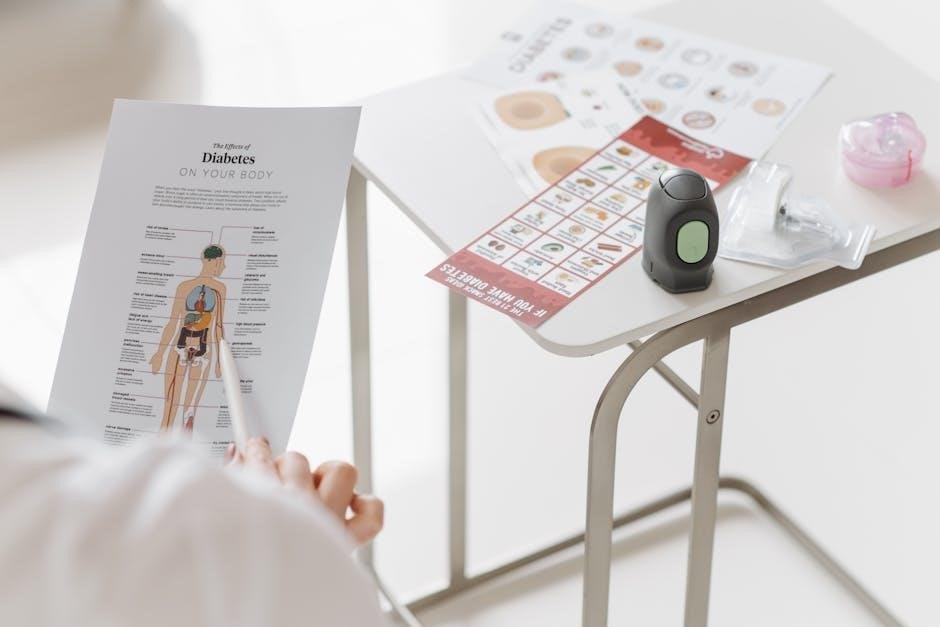
Transitioning from Medical School to Practice
Transitioning from medical school to practice involves adapting to real-world clinical responsibilities, bridging the gap between theoretical knowledge and practical application, and developing essential communication and decision-making skills.
2.1 Understanding the Difference Between Theory and Practice
Transitioning from medical school to practice reveals a significant gap between theoretical knowledge and real-world application. While medical school focuses on structured learning, clinical practice demands quick decision-making and hands-on skills. Junior doctors often find that the controlled environment of classrooms contrasts sharply with the unpredictability of hospitals. Practical experience highlights the need for adaptability, critical thinking, and effective communication. Building confidence in applying theoretical concepts to patient care is essential. This chapter explores strategies to bridge this gap, emphasizing the importance of observation, hands-on training, and continuous learning to thrive in clinical settings.
- Recognize the limitations of theoretical knowledge in real-world scenarios.
- Develop practical skills through hands-on experience and mentorship.
- Embrace lifelong learning to stay updated with clinical advancements.
2.2 Building Clinical Confidence
Clinical confidence is crucial for junior doctors to excel in patient care. It involves trusting your knowledge, skills, and judgment while staying adaptable in dynamic situations. Start by seeking mentorship from experienced colleagues, as their guidance can help you navigate uncertainties. Engage in active learning through workshops, journals, and case studies to enhance your practical skills. Effective communication with patients, families, and teams fosters trust and clarity. Reflect on your decisions and outcomes to identify areas for improvement. Celebrate your successes, no matter how small, to reinforce positive behaviors. Building confidence takes time, but with practice and perseverance, you’ll become a capable and compassionate clinician.
- Seek mentorship for guidance and support.
- Engage in continuous learning to refine skills.
- Practice reflective learning to improve decision-making.
2.3 Navigating Hospital Hierarchy and Communication
Understanding the hospital hierarchy and improving communication skills are essential for junior doctors. Familiarize yourself with the roles of consultants, registrars, and other healthcare professionals to ensure clear reporting lines. Effective communication involves active listening, clarity, and respect. Be concise in handovers and documentation to avoid misunderstandings. Building rapport with nurses, allied health professionals, and administrative staff fosters collaboration and a supportive work environment. Regularly seek feedback to refine your communication style and adapt to the hospital’s culture. Clear and respectful interactions enhance patient care and teamwork, making your transition to practice smoother and more effective.
- Learn the roles and responsibilities of your team members.
- Practice clear and concise communication in handovers.
- Respect and engage with all healthcare professionals.

Mastering Clinical Responsibilities
Mastering clinical responsibilities involves refining patient assessment, diagnosis, and documentation skills. Stay organized, prioritize tasks, and maintain clear communication to ensure effective patient care and teamwork.
- Develop strong patient assessment techniques.
- Accurate and timely documentation is crucial.
- Seek feedback to improve clinical skills.
3.1 Patient Assessment and Diagnosis
Patient assessment and diagnosis are foundational skills for junior doctors, requiring a systematic approach to gather accurate information and make informed decisions. Start with a thorough medical history, focusing on chief complaints, symptoms, and past medical history. Perform a detailed physical examination, using observational and hands-on techniques to identify abnormalities. Order appropriate investigations, such as lab tests or imaging, to confirm diagnoses. Prioritize differential diagnoses based on clinical findings and patient context. Effective communication with patients, families, and multidisciplinary teams ensures clarity and collaboration. Regularly review and refine your diagnostic reasoning to improve accuracy and confidence in high-pressure environments. Seeking feedback from senior colleagues can enhance your diagnostic skills and patient care outcomes.
- Practice a structured approach to history-taking and examination.
- Use checklists or frameworks to avoid missing critical details.
- Stay updated with clinical guidelines and evidence-based practices.
3.2 Effective Documentation and Record-Keeping
Accurate and timely documentation is a cornerstone of safe and effective patient care. Junior doctors must master the skill of clear, concise, and comprehensive record-keeping to ensure continuity of care and legal accountability. Always document patient histories, physical examinations, diagnoses, treatment plans, and follow-up actions. Use standardized templates or checklists to avoid missing critical information. Be precise with dates, times, and signatures, and maintain patient confidentiality. Regularly review and update records to reflect changing patient conditions. Effective documentation also aids in communication with multidisciplinary teams and supports clinical decision-making. Invest time in developing this habit, as it is vital for patient safety and professional integrity.
- Use clear and concise language in all records.
- Ensure timely updates to reflect patient progress.
- Double-check for accuracy and completeness.
3.3 Managing Emergencies and High-Pressure Situations
Staying calm and composed is essential when managing emergencies and high-pressure situations. Junior doctors must prioritize patient safety while maintaining clear communication with the team. Always follow the ABCDE approach (Airway, Breathing, Circulation, Disability, Exposure) to systematically assess and stabilize patients. Regular training and simulation drills can enhance your ability to respond effectively. Use checklists or mnemonics to avoid missing critical steps. Prioritize tasks, delegate responsibilities, and keep seniors informed early. Remember, decision-making under pressure requires a structured approach. Stay hydrated, ensure access to essential tools, and maintain situational awareness. Regular practice and support from colleagues will help you thrive in these challenging environments.
- Stay calm and systematic in emergencies.
- Use the ABCDE framework for patient assessment.
- Communicate clearly with your team and seniors.

Time Management and Work-Life Balance
Mastering time management and maintaining a healthy work-life balance is crucial for junior doctors. Prioritize tasks, delegate effectively, and schedule personal time to avoid burnout and maintain well-being.
- Organize tasks to optimize productivity during shifts.
- Set boundaries between work and personal life.
- Utilize tools like calendars or apps for better scheduling.
4;1 Prioritizing Tasks and Delegating Effectively
Effective task prioritization and delegation are essential for managing workload as a junior doctor. Start by identifying critical tasks that require your expertise and delegate routine duties to other team members. Use tools like task lists or digital apps to organize and track progress. Communicate clearly with colleagues to ensure delegated tasks are understood and completed efficiently. Regularly review and adjust priorities to adapt to changing situations. This approach not only enhances productivity but also reduces stress and fosters teamwork in a fast-paced clinical environment.
- Use the Eisenhower Matrix to categorize tasks by urgency and importance.
- Delegate tasks based on skill level and availability of team members.
- Schedule regular check-ins to monitor progress and provide feedback.
4.2 Managing Shift Work and Fatigue
Managing shift work and combating fatigue is crucial for junior doctors to maintain performance and well-being. Irregular schedules can disrupt sleep patterns, so establishing a consistent sleep routine is vital. Prioritize rest days to recharge and avoid excessive overtime. Incorporate physical activity, even short walks, to boost energy levels. Stay hydrated and maintain a balanced diet to fuel your body during long shifts. Cognitive aids like caffeine can help, but avoid overuse. Utilize mindfulness techniques to manage stress and stay alert. Openly communicate with colleagues and supervisors about fatigue concerns to ensure a supportive work environment.
- Plan meals in advance to avoid unhealthy eating.
- Use relaxation techniques to unwind after shifts.
- Seek support if chronic fatigue persists.
4.3 Maintaining Personal Well-being and Social Life
Maintaining personal well-being and a social life is essential for junior doctors to thrive amidst demanding schedules. Prioritize self-care by scheduling downtime and engaging in hobbies that bring joy. Stay connected with friends and family through regular check-ins or planned outings. Explore mindfulness practices or meditation to manage stress and maintain mental clarity. Incorporate physical activity, such as walking or yoga, to refresh your mind and body. Use technology, like video calls, to stay in touch with loved ones when in-person meetings aren’t possible. Set boundaries between work and personal life to prevent burnout. Building a strong support network ensures a healthier work-life balance.
- Schedule social activities in your calendar to ensure they happen.
- Join clubs or groups aligned with your interests to meet like-minded individuals.
- Seek support from professional networks or wellness programs.
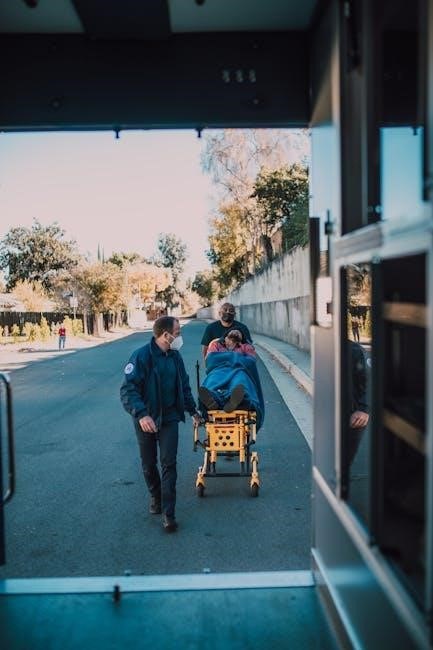
Professional Development and Continuous Learning
Continuous learning and professional development are vital for junior doctors to enhance clinical skills, stay updated with medical advancements, and advance their careers effectively.
5.1 Staying Updated with Medical Guidelines and Research
Staying updated with the latest medical guidelines and research is essential for junior doctors to deliver evidence-based care. Regularly review reputable sources like medical journals, clinical practice guidelines, and systematic reviews. Utilize online databases such as PubMed, Cochrane Library, and Google Scholar to access the most recent studies. Subscribe to medical newsletters and professional organization updates to stay informed. Attend conferences, webinars, and workshops to expand knowledge and network. Leverage technology by using medical apps like UpToDate or BMJ Best Practice for quick access to updated guidelines. Dedicate time each week to read and reflect on new findings to ensure continuous improvement in patient care.
5.2 Feedback and Reflection for Growth
Feedback and reflection are vital tools for junior doctors to enhance their clinical skills and professional development. Seek regular feedback from colleagues, mentors, and patients to identify strengths and areas for improvement. Reflect on clinical experiences, challenging cases, and learning opportunities through debriefing sessions or reflective diaries. Use feedback to adjust your approach and refine decision-making. Reflective practice fosters self-awareness, improves patient care, and supports long-term growth. By embracing feedback and reflection, junior doctors can continuously evolve, addressing gaps in knowledge and improving interpersonal skills. This iterative process is key to becoming a competent, compassionate, and resilient healthcare professional.
5.3 Building a Professional Network
Building a professional network is crucial for junior doctors to gain support, guidance, and opportunities for growth. Connect with colleagues, mentors, and industry leaders through conferences, workshops, and online platforms. Engage in professional organizations and specialty-specific groups to expand your influence. Regular communication and collaboration with peers can foster shared learning and problem-solving. A strong network provides access to advice, job opportunities, and collaborative research. Additionally, networking enhances your visibility in the medical community, opening doors for career advancement. By nurturing these relationships, junior doctors can build a robust support system that aids in both personal and professional development, ensuring long-term success in their careers.
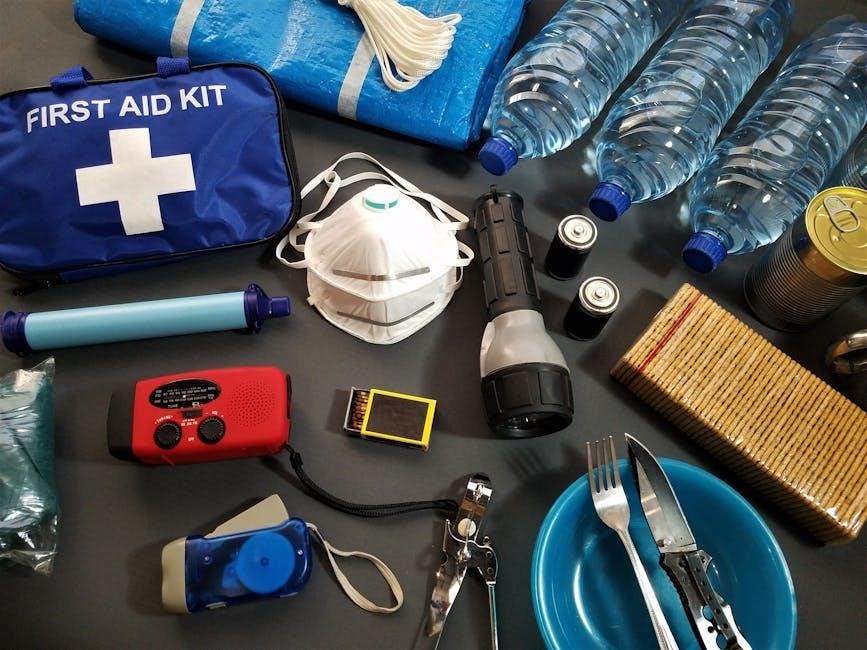
Practical Tools and Resources for Success
Utilize essential medical apps, organizational tools, and support systems to streamline tasks, enhance productivity, and ensure effective patient care. These resources are vital for junior doctors’ success. Key tools include digital platforms for documentation, communication, and time management, while mentorship programs and peer support networks provide invaluable guidance and reassurance. By leveraging these practical aids, junior doctors can efficiently navigate their demanding roles and deliver high-quality care. These tools not only improve workflow but also contribute to personal and professional growth, making them indispensable in a junior doctor’s journey. They are designed to simplify challenges and foster excellence in clinical practice.
6.1 Essential Medical Apps and Software
Equipping yourself with the right medical apps and software is crucial for efficient patient care and professional success. UpToDate and Medscape provide evidence-based clinical guidelines, while MDCalc offers medical calculators for quick decision-making. Epocrates is ideal for drug information and interaction checks. For documentation, Evernote and Google Workspace streamline note-taking and collaboration. Apps like Trello help manage tasks, and secure communication platforms like WhatsApp or Microsoft Teams facilitate team coordination. These tools enhance accessibility, accuracy, and efficiency, enabling junior doctors to deliver high-quality care. Staying updated with these resources ensures you remain well-equipped to handle daily challenges effectively. They are indispensable for modern clinical practice. These tools are your gateway to smarter, faster, and better patient care.
6.2 Organizational Tools for Managing Tasks
Effective task management is essential for junior doctors to stay organized and efficient. Tools like Trello and Asana help prioritize tasks, assign responsibilities, and track progress. Todoist is great for creating and managing checklists, ensuring no detail is overlooked. Digital calendars such as Google Calendar or Microsoft Outlook allow scheduling and setting reminders, preventing missed deadlines. Evernote is ideal for jotting down notes, ideas, and patient details securely. These tools enhance productivity, reduce stress, and ensure seamless communication with the team. By integrating these organizational tools, junior doctors can maintain clarity and focus, even in high-pressure environments, ultimately improving patient care and personal efficiency. These tools are indispensable for modern healthcare professionals.
6.3 Accessing Support and Mentorship
Junior doctors often benefit from robust support systems to navigate their demanding roles. Formal mentorship programs can provide guidance, helping you refine clinical skills and career goals. Peer support groups offer a platform to share experiences and challenges, fostering camaraderie and mutual understanding. Informal networks, such as trusted colleagues or senior doctors, can also serve as invaluable resources for advice. Additionally, many hospitals offer access to counseling services and helplines to support mental well-being. Leveraging these resources ensures junior doctors receive the help they need to thrive. Building a strong support network is crucial for both personal and professional growth, fostering resilience and confidence in the workplace.
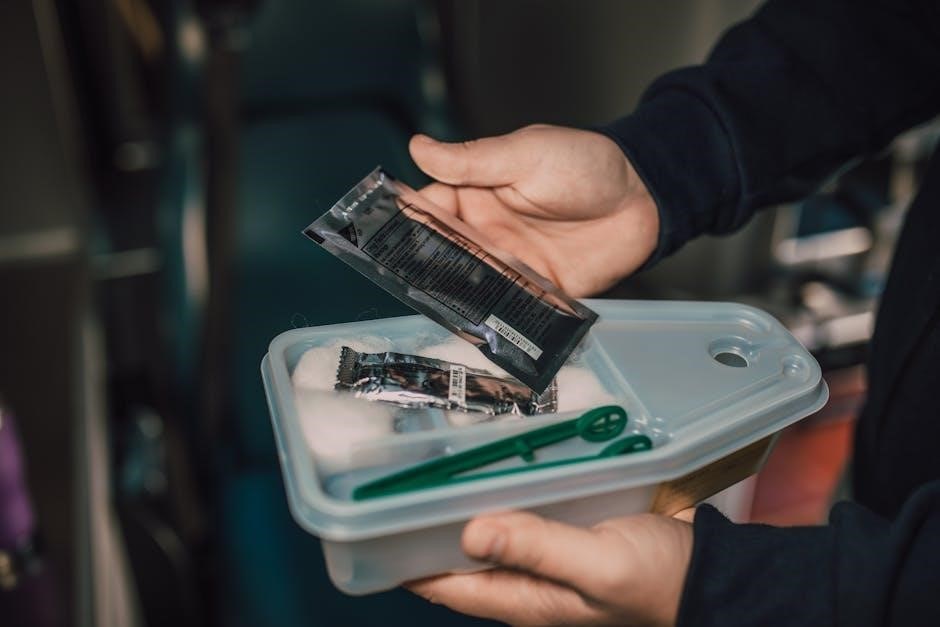
Financial Management for Junior Doctors
Effective budgeting, student loan management, and financial planning are essential for junior doctors to secure their financial future and reduce stress during their demanding careers.
7.1 Budgeting and Managing Expenses
Effective budgeting is crucial for junior doctors to manage their finances wisely. Start by tracking all income and expenses to understand spending patterns. Create a detailed budget that prioritizes essential expenses like rent, utilities, and groceries over discretionary spending. Use budgeting apps like Mint or YNAB to monitor and control expenditures. Automate savings to ensure consistent financial reserves. Consider setting up separate accounts for emergencies and long-term goals. Regularly review and adjust the budget to accommodate changes in income or expenses. This disciplined approach helps junior doctors maintain financial stability and reduce stress during their demanding careers.
7.2 Understanding and Managing Student Loans
Managing student loans is a critical aspect of financial planning for junior doctors. Start by understanding your loan terms, including interest rates, repayment periods, and forgiveness options. Consider income-driven repayment plans to align monthly payments with your earnings. Consolidating loans can simplify payments and potentially lower interest rates. Prioritize paying off high-interest loans while making minimum payments on others. Use tax-advantaged strategies, such as deducting interest payments, to reduce financial strain. Regularly review and adjust your repayment strategy to stay on track. Seeking advice from financial advisors can also help optimize your approach to managing student debt effectively during your early career.
7.3 Planning for Financial Security
Planning for financial security as a junior doctor involves creating a long-term strategy to manage your income effectively. Start by setting clear financial goals, such as saving for a home, retirement, or paying off debt. Develop a budget that accounts for all expenses, ensuring you prioritize essential needs over discretionary spending. Consider contributing to tax-efficient savings vehicles, such as pensions or ISAs, to maximize your savings. Avoid lifestyle inflation as your income grows by reinvesting excess funds into secure investments. Diversify your portfolio to build wealth gradually and safeguard against financial risks. Regularly review and adjust your financial plan to stay on track and seek advice from a financial advisor to tailor strategies to your needs.

Mental Health and Resilience
Prioritizing mental health is crucial for junior doctors to thrive in high-pressure environments. Recognize signs of burnout, build emotional resilience through mindfulness, and seek support when needed.
8.1 Recognizing Signs of Burnout
Burnout is a common challenge for junior doctors, often manifesting as emotional exhaustion, depersonalization, and reduced personal accomplishment. Key signs include chronic fatigue, cynicism, and detachment from work.
Physical symptoms like headaches, sleep disturbances, and increased irritability may also indicate burnout. Recognizing these signs early is crucial to preventing long-term mental and physical health consequences.

Addressing burnout proactively ensures junior doctors can maintain their well-being and continue providing compassionate patient care without compromising their own health or career satisfaction.
8.2 Strategies for Building Emotional Resilience
Building emotional resilience is essential for junior doctors to cope with the demands of their profession. Practice mindfulness and self-compassion to manage stress and maintain a positive outlook.
Engage in regular physical activity, healthy eating, and sufficient sleep to strengthen both physical and mental well-being. Setting realistic goals and prioritizing tasks can help reduce feelings of overwhelm.
Seek support from colleagues, mentors, or professional networks to share challenges and gain perspective. Embrace opportunities for reflection, such as journaling, to process emotions and identify areas for growth.
By cultivating these habits, junior doctors can enhance their resilience, better navigate high-pressure environments, and sustain their passion for patient care.
8.3 Seeking Help and Support Systems
Recognizing when to seek help is crucial for junior doctors to maintain their well-being. Utilize hospital-provided counseling services or mental health support programs designed for medical professionals.
Connect with peer support groups or mentorship programs to share experiences and gain advice from seasoned colleagues. Professional organizations often offer resources to help manage stress and burnout.
Don’t hesitate to reach out to supervisors or trusted peers for guidance. Confidentiality and non-judgmental support are prioritized to ensure a safe environment for seeking help.
Leverage helplines, online forums, and wellness initiatives tailored for junior doctors. Remember, seeking support is a sign of strength, not weakness, and is vital for long-term success in your career.
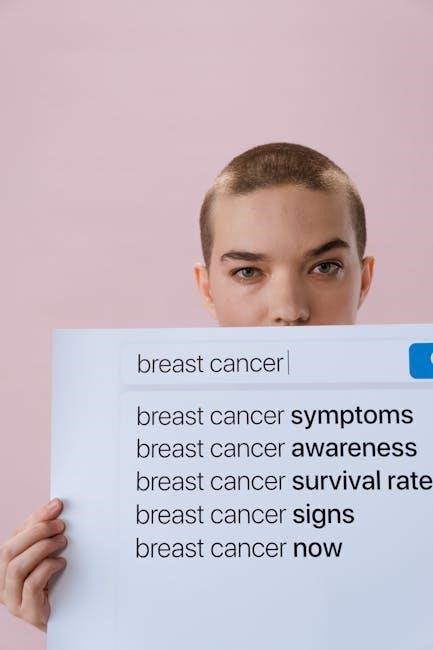
Looking Ahead: Career and Personal Growth
Plan your future by setting clear career goals and pursuing continuous learning. Balance professional ambitions with personal well-being to achieve long-term fulfillment and success in both realms.
9.1 Setting Short- and Long-Term Career Goals
Setting clear career goals is essential for professional growth. Start by identifying short-term objectives, such as improving clinical skills or gaining experience in a specialty. Long-term goals might include pursuing a fellowship, becoming a consultant, or entering medical research. Regularly reviewing and updating these goals ensures alignment with your evolving aspirations. Seek mentorship and feedback to refine your path and stay on track. Balancing ambition with flexibility allows you to adapt to opportunities and challenges, ensuring a fulfilling and purposeful career trajectory.
9.2 Preparing for Residency and Specialization
Preparing for residency and specialization requires strategic planning and dedication. Research potential programs thoroughly, focusing on alignment with your career goals and interests. Gain relevant clinical experience through rotations, electives, or additional training to strengthen your application. Building a strong portfolio, including research, publications, and extracurricular activities, is crucial. Secure robust letters of recommendation from mentors and supervisors. Stay updated on application deadlines and requirements, and tailor your CV and personal statement to highlight your strengths and aspirations. Additionally, prepare for standardized exams like the USMLE or PLAB by studying consistently and practicing with mock tests. Seek mentorship to guide your preparation and ensure a smooth transition into your chosen specialty.
9.3 Balancing Career and Personal Ambitions
Balancing career and personal ambitions is essential for long-term satisfaction and well-being. Set clear boundaries to protect personal time and prioritize self-care. Communicate openly with family and friends about your commitments to maintain support systems. Regularly assess and align your goals with both professional and personal values. Consider flexible work arrangements or part-time roles if needed. Engage in hobbies and interests outside of medicine to nurture your identity beyond your career. Building a strong support network, including peers and mentors, can help manage the demands of both realms; By harmonizing these aspects, you can achieve a fulfilling and sustainable work-life balance that supports your overall happiness and success.